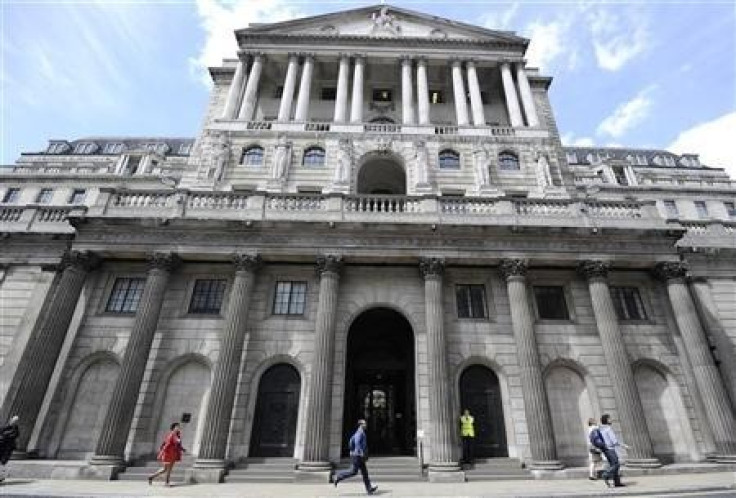UK Banks' £27.1bn Capital Hole Exposed by PRA

Five of Britain's best-known banks must find an extra £27.1bn to meet regulatory capital ratio requirements, after probing by the Bank of England's Prudential Regulation Authority exposed shortfalls on their balance sheets.
Taxpayer-backed RBS and Lloyds had the biggest capital shortfalls of the five. RBS, which is 81% owned by the government after a financial crisis bailout, needs to find £13.6bn (€15.9bn, $21bn). Lloyds, in which taxpayers have a 39% stake because of a bailout, needs another £8.6bn.
The other three are Barclays, which must find another £3bn; Co-operative Bank, with a £1.5bn shortfall; and Nationwide, which needs another £400m.
Using rules suggested under the Basel III agreement, the PRA said UK banks must target a risk-weighted capital ratio of at least 7% by 2019. This is to shore themselves up against any future financial catastrophe, so the taxpayer is not at risk of bailing banks out again as it did at the height of the financial crisis in order to prevent mass bankruptcy and collapse in the system.
So far the five banks asked to address capital shortfalls have ratios of between 2% and 5%.
There is a tension between banks increasing capital ratios as required by regulators, and pressure from the Bank of England and Treasury to increase lending to consumers and small firms.
The Bank of England has credit easing initiatives in place, such as the Funding for Lending Scheme, to ease the flow of credit into the real economy by incentivising banks with cheap money if they do so.
"The PRA has asked firms to ensure that all plans to address shortfalls do not reduce lending to the real economy," said the Bank of England.
Lloyds and RBS re-privatisation
Taxpayers forked out £65bn in bailouts for RBS and Lloyds, who were deemed too big to fail during the financial crisis and whose collapse would have had a devastating knock-on effect not just for the banking system, but the wider economy.
As a result, the government owns significant stakes in both banks.
Chancellor George Osborne said in his annual Mansion House speech he wants to return Lloyds to the private sector soon because it is in a "good position".
"Investor interest is growing and shares are already trading at around the price where selling would reduce the national debt. That's something we all want to see," Osborne told financiers gathered in the City of London.
"I can announce that we are actively considering options for share sales in Lloyds. Of course, we will only proceed if we get value for the taxpayer and we have no pre-fixed timescale or method of disposal."
Osborne also said he would consider splitting RBS into two, dividing its retail and investment businesses. However, it is much further from a full return to the private sector than Lloyds.
"I don't want a quick sale of our RBS shares. I want the right sale - the right sale for the British people," said Osborne.
"I will only sell our stake in RBS when we feel the bank is fully able to support our economy and when we get good value for you, the taxpayer. In our judgment, when it comes to RBS that moment is some way off."
Co-operative's £1.5bn capital hole
Co-operative Bank had already revealed ahead of the PRA's stress test announcement that it had a £1.5bn capital shortfall.
It intends to raise the money by converting Co-op Bank debt held by junior bondholders into equity, which - if accepted by the investors - would raise £1bn in 2013 and £500m in 2014.
However, ratings agency Moody's downgraded Co-op Bank and said it is facing imminent default on its junior debt.
"Moody's response is entirely anticipated and we expect the rating agencies to improve their ratings in due course upon successful completion of the Exchange Offer," said a Co-op statement.
"As a result of the capital actions announced yesterday, the bank is significantly increasing its capital base ... which will enable it to move forward on a stable footing as a focused core relationship bank, serving retail and SME customers."
© Copyright IBTimes 2024. All rights reserved.






